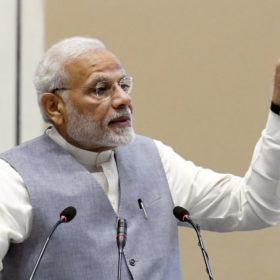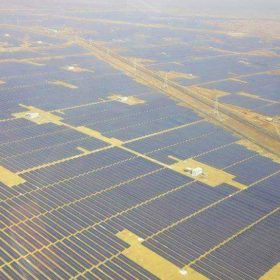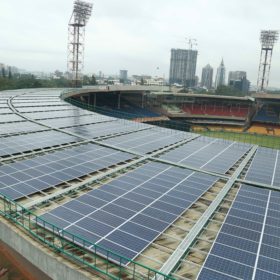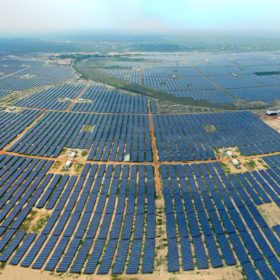Covid-19 lockdown: MNRE asks Discoms not to stop payments to renewable power producers
The clarification came after States reacted wrongly to the power ministry’s recent order providing a moratorium on conventional power payments and started stopping payments or curtailing renewable power.
DGTR initiates review of safeguard duty on solar cells and modules
An application seeking continued imposition of the safeguard duty for a further period of four years was filed by Mundra Solar PV, Jupiter Solar Power and Jupiter International, through the Indian Solar Manufacturers Association (ISMA).
Solar projects reprieved as Indian government declares coronavirus a force majeure
Lobby group the National Solar Energy Federation of India says around 4 GW of solar plant capacity is likely to be affected by component shortages after the outbreak of the virus in China.
Large scale storage still some way off
Consultancy Bridge to India has looked into its crystal ball to predict India will add 10 GW of solar capacity this year and the same next year before deployment slows to 7 GW per year in 2022 and 2023, dogged by hurdles such as an inexplicable ongoing demand for new coal-fired power plants.
Azure Power posts Q3 loss but continues to expand solar portfolio
The New Delhi-based developer posted a Rs136 crore loss from October to the end of December but has managed to shift current liabilities into the long grass as it aims to continue on an expansionist trail, backed by the Canadian pension fund which holds almost half its shares.
Clarify basic customs duty on solar modules as Change in Law, NSEFI writes to SECI
Solar cells and modules will continue to attract zero basic customs duty unless exemption notification 24/2005, dated March 1, 2005 is amended to reflect the 20% increase by Ministry of Finance, said the lobby group.
Andhra Pradesh: Care Ratings puts 26 renewable developers on negative watch
Ratings may be downgraded if there is a persistent delay in resolving the tariff related dispute or any adverse revision in the tariffs by the state regulator and/or continued delays in receipt of payments from DISCOMs.
2020 Solar Match: Chasing the Target
While openers like SRISTI scheme for rooftop solar and KUSUM for farmland solar are likely to give a promising start, their implementation on the ground will determine our winning trajectory this year. Simply going by the connotation of 6 balls an over in the game of Cricket, this article looks at 6 factors that will push India to achieve its 2022 solar target.
Cheap Indian imports claim prompts Bangladesh to introduce solar standards
Dhaka has heeded complaints about Indian manufacturers allegedly dumping sub-standard PV products over the border and issued a requirement for modules, inverters, charge controllers and batteries to attain IEC electrical standards.
Tamil Nadu: Solar developers get relief as APTEL quashes power regulator’s unviable tariff order
The Appellate Tribunal for Electricity (APTEL) observed that Tamil Nadu Electricity Regulatory Commission (TNERC), in its Solar Tariff Order dated March 28, 2016, determined the tariff/capital cost without cogent or adequate reasoning while also being divergent from its own regulations.














